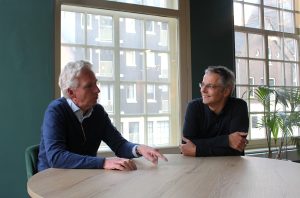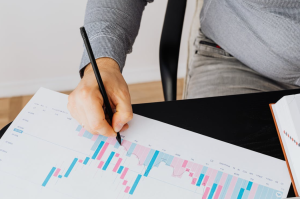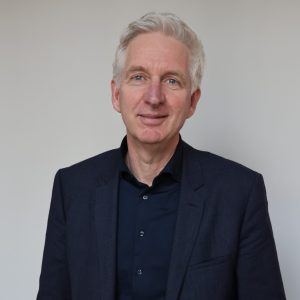Conversation series: The dilemmas in climate and development
Welcome to our Conversation Series, where we discuss topics relevant to our work around impact and sustainability. In this piece, our consultant Beatriz talks to our partner René about how climate has shaped the conversation around development impact and why the West needs to take a lot more responsibility for their part in the climate crisis.
Let me take you back twenty years ago, when you started advising financial institutions on topics of development impact. How has the conversation around development impact evolved? And how has climate shaped this conversation? Twenty years ago, it became clearer that organizations had a responsibility beyond making profit. Climate change was one of the things being discussed but the effects of climate change were not so visible yet, and it’s only been over the last three years that we have seen this topic become really hot. That has massively surprised me. To me, this whole discussion is fifteen years late. But now that it is starting to affect us, we (the West) are pushing the urgency to act partly on developing countries. We went from zero attention to hundred. And it would have been a good idea to first look at ourselves.
Right, and this is where it gets complicated. There is a need to globally commit to climate action, but we know there are trade-offs between climate and development. In the simplest terms, if we keep prescribing development as business as usual and growing GDPs, we are headed for a climate catastrophe. I would say there are instances where development and climate go hand in hand, and there is no discussion that development and adaptation go very much hand in hand. I don’t think we are putting enough attention on adaptation and this is where I would like financial institutions to focus on. But I am sure you look at it from a different perspective.
I do worry more about climate mitigation, and I feel a huge sense of urgency. When I think about integrating climate in the development discourse, I think about investments in alternative energy sources and business models. We absolutely shouldn’t be increasing emissions. You say we have alternatives, and that is true in the West. Many developing countries don’t have that luxury. Resolving a lack of sufficient and reliable power with renewable technologies in many developing countries is hard and expensive. And these countries have very real constraints in accessing sufficient finance. So, I do agree with you – but, in that case, we should be providing that finance. The countries that face development needs are always capital-starved, and we cannot impose more expensive solutions on them, without providing the finance. Because we absolutely cannot compromise on development impact that could have happened.
I agree and this is a conversation we have with clients, on finding a balance between the urgency for climate action and the very real development needs that also exist right now. What are the questions we should be asking, to move financial institutions in the right direction? From a development finance institution (DFI) perspective, what we should be asking is – how can we offer a solution with the same development impact in a more sustainable fashion? If we can have the same development impact at a higher price, we should be willing to pay that price, and therefore lower our expectations on returns. In the case of DFIs, governmental shareholders need to be understandable of the fact that this implies a more risk-taking approach. Also, the lack of financeable projects is often an even bigger hurdle than financing these projects. In my view DFIs should play a role in making the market rather than following the market, but that requires a different risk appetite.
More generally, what makes you hopeful that we are on the right track in the climate transition? I think there is a better understanding compared to twenty years ago of the many ways in which climate and development go hand in hand, such as with adaptation. There are also many times where we don’t see this, especially in the short-term and particularly with climate mitigation, as we discussed. If there were no trade-offs, this would not be a point of discussion. Many DFIs, for example CDC (now BII), DEG and FMO, are focusing much more on climate because of pressure from their government shareholders. That is the right track – I just hope that it does not come at the expense of development. As per the rule named after the first Nobel prize winner Tinbergen, achieving multiple targets requires at least one policy instrument for each target.
René is a founding Partner at Steward Redqueen. He has advised financial institutions on impact, climate, and sustainability for over 20 years. He is based in Barcelona. Reach out here: rene.kim@stewardredqueen.com
Beatriz is a consultant at Steward Redqueen. She has a Master’s in Business and Sustainability and has worked on projects across Africa. She is based in Amsterdam. Reach out here: beatriz.ramos@stewardredqueen.com
















